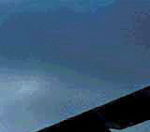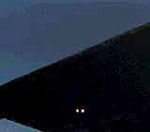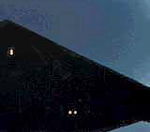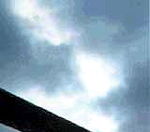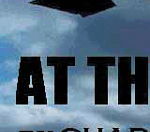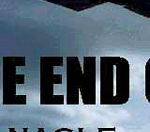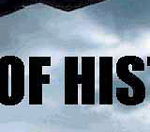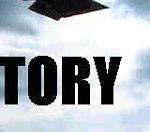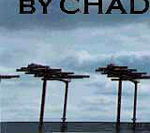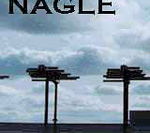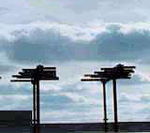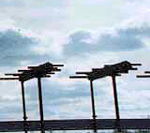|
April
17, 2001
Hainan
Dim-Sum:
Feeding a Bully's Sinister Agenda
At
the same time that news was coming in about our well-treated,
well-fed and comfortable boys and girls on Hainan Island, I was
nourishing a mean-spirited reverie. It was a vision of the Chinese
soldier who approached the American plane on the runway, and was
reportedly obstructed by a member of the crew. I pictured him
quickly and effortlessly wrestling the US airman to the ground
before proceeding to board the aircraft, almost without breaking
his stride. In contrast to the increasingly unimpressive looking
members of our own military, the Chinese soldier displayed a strong
sense of esprit de corps, pride in his uniform, and awareness
of his national identity. Unlike the US armed forces, his army
had not tried to build his self-esteem by inculcating him with
political correctness, sensitivity and multiculturalism. But while
I didn’t exactly "sympathize" with the Chinese soldier,
I was deeply disturbed by the fact that I felt no propensity to
cheer on my own country’s uniformed serviceman, so neatly and
abruptly dropped to the ground in a foreign state, at all.
CHINESE
MANIFEST DESTINY CONFRONTS WESTERN ROT
Amid
all the Bush administration’s bluster over the standoff with China,
I thought it interesting that all our media more or less took
for granted America’s absolute right to spy on China in the South
China Sea. Seventy years ago, American leaders viewed spying as
"dishonorable" and refused to countenance it as part
of official policy. In 1929, no US agency conducted covert operations
abroad or performed foreign intelligence as its chief function.
Secretary of State Henry Stimson even closed the "Black Chamber,"
a code-cracking office the War Department set up in Manhattan,
saying it was as a "blow for gentlemanliness in foreign affairs."
Can anyone imagine this attitude now? Far from becoming a place
where spying is a human aberration, the world is transforming
– at America’s behest – into a place similar to what Stalin henchman
Anastas Mikoyan must have envisioned when he declared: "Every
citizen of the USSR is an employee of the NKVD."
Maybe
spying is a phenomenon that must inevitably complement (or drive)
globalization. However, leaving aside the issues of the competence,
reliability and trustworthiness of those charged with interpreting
intelligence data for higher-ups, it is difficult to feel entirely
confident about the caliber or sophistication of America’s intelligence-gatherers
in the field. Surely, many Americans felt at least a tinge of
shame when a report came back that the crew of the EP-3E had been
visited in captivity, and all they wanted to talk about was the
retirement of the Dallas Cowboys quarterback and the rumored comeback
of former Chicago Bulls basketball player Michael Jordan. At the
center of a crisis rapidly reaching global proportions, they were
all eager to hear about their "favorite teams."
This
may be little different from US troops during World War II, although
one suspects the taste in music has declined since then. But compare
today’s troops with soldiers who sent letters home during the
American Civil War, many of whom were not only idealistic but
also evidently highly literate. The contrast surely says something
disturbing about where America and the world are going.
What
are we (America) really spreading with our "benevolent hegemony"?
If it is true that everyone in the world primarily wants drugs,
fast food, discos, pornography, "gangsta rap," violent
movies, violent video games, guns in schools, annoying commercial
jingles and pop music in every public place, then maybe America
really is just giving Humanity what it wants. But one must hope
that most of the world does not want to be exactly like America
is today.
"AMERICAN
PSYCHO" AS THE WAR PARTY ARCHETYPE
The
message from Charley Reese’s superb article in the Orlando
Sentinel on April 10, 2001 ("Sadly,
McVeigh is a typical American in many respects") is that
the personification of modern American society’s cultural core
is rapidly coming to resemble Oklahoma terrorist bomber Timothy
McVeigh, who murdered 168 innocent people in a single blast.
Many
Americans, while they may not wish to admit it, see themselves
when they look at McVeigh. Oh, they don’t have the nerve to
act out their malice as he did, but they are always eager
to advocate violence; they, too, have cockamamie opinions
based on propaganda; they, too, think that not all lives are
equal and that some can be sacrificed for political reasons…[W]e
are creating our own Frankenstein monsters, and McVeigh isn’t
the only one by a long shot. A society that sends a message
to its children that violence is the way to settle disputes,
that might makes right and that not all lives are equal in
value should not play the hypocrite when its sons and daughters
learn their lessons well.
The
article mentions the US-China standoff in the context of comparing
the mentality of those Americans who banged the war drums – in
both the corridors of power and Punditland – to McVeigh’s, and
the comparison is surely apt in many cases. But something else
to be taken from the article was: why should Americans assume
that imposing their society on the world – of which they are a
part – will make the world a better place? We do face serious
social problems at home. Apart from the obviously negative influence
of bombings and military police actions everywhere, our cultural
impact on the rest of the world is far from totally benign. For
example, not long ago regular policemen in Britain didn’t carry
guns because there was simply no need. Now, sadly, more police
there are armed each year under America’s cultural dominance.
Russia is now "Americanized" as well, as murders, prostitution,
and mafia crime have snuffed out the decent aspects of that society.
With
a plate full of social problems on our domestic table, we Americans
should be wary about our forces patrolling the South China Sea.
There is little evidence that China – an empire beset with internal
problems – is about to launch any of its 32 ICBMs at California
or attack Pearl Harbor. We might be better advised to limit use
of our military and 982 ICBMs to defending our own borders, instead
of those of Taiwan or other Southeast Asian states that weren’t
exactly loudly backing us up in the China standoff. "Evil
Empire" is a redundant term, and US policing of the globe
is unlikely to produce lasting world peace. Americans should be
unhappy about footing the bill anyway. That such operations benefit
big multinationals more than most Americans has a distinctly corrupt
feel to it.
|
Text-only
printable version of this article
Write
to Chad Nagle
Chad
Nagle is a professional writer and lawyer. He has been published
in the Wall Street Journal Europe, the Washington Times, and several
other periodicals. Mr. Nagle traveled extensively throughout the
ex-USSR from 1992-97 as a research consultant. Since mid-1999,
he has traveled widely in the former Communist bloc on behalf
of the British
Helsinki Human Rights Group.
His
column, At the End of History, appears alternate Fridays
on Antiwar.com.
Previous
articles by Chad Nagle
Hainan
Dim-Sum: Feeding a Bully's Sinister Agenda
4/17/01
The
Revolution Comes to Ukraine
3/30/01
Red
Dawn in Moldova?
3/16/01
Musings
On The New Imperialism and Post-Western World Government
2/23/01
Soros:
False Prophet-At-Large
2/9/01
Belarus:
Oasis In The Heart Of Europe
1/26/01
Serbia
Joins the West
1/12/01
Death
of a Patriot
8/31/00
The
Twilight of Sovereignty in Azerbaijan
7/14/00
The
Ukrainian Model of Democracy
5/5/00
The
Slow Strangulation of Democracy in Slovakia
3/28/00
Patrick
Buchanan and the American Reformation
1/25/00
The
Betrayal of Democracy in Post-Soviet Georgia
11/30/99
|
THE
TRIUMPH OF CORRUPTION
Comparing
our own politicians to the leaders of China, most Westerners would
probably describe our variety as less "corrupt." We
tend to see "corruption" as straightforward palm-greasing,
individuals holding positions in government and business simultaneously,
and so forth. But corruption should be viewed much more broadly
than that. At the risk of offending syndicated columnist George
F. Will (who appears to believe he is an expert on the subject
of corruption), let us recognize that during the eleven-day US-China
standoff America’s executive political leadership exhibited corruption
for all the world to see.
Simply
pointing to the personal wealth and business connections of Bush
administration members and saying "money corrupts" is,
unfortunately, inadequate. Likewise, merely pointing out that
imperialism is a form of corruption – as I think it is – feels
too general and too obvious. Clearly Washington was reluctant
to apologize to Beijing for violating Chinese sovereignty out
of fear that doing so might limit, at least in principle, US room
to violate sovereignty elsewhere around the world. Such an imperialistic
mindset is certainly corrupt, but it alone does not define the
precise form of corruption displayed by Washington during the
crisis. It was, in fact, a pecuniary corruption of the administration’s
very ability to lead.
During
the 11-day standoff, US policy toward China felt as if it was
directly, as opposed to indirectly, in the hands of "Big
Business." When the Chinese took twenty-four American servicemen
and women into custody, the instant response from Washington was
that the US had done nothing wrong, and that there was nothing
to say sorry for. It also condemned China for detaining the Americans,
but used the word "detainees" in an effort to employ
a "softer" tone. Yet if the detention was in fact illegal,
the prisoners had to be hostages, because their captors were demanding
a ransom (i.e., an apology). Although the administration never
spat it out, it defined the Chinese in so many words as "kidnappers"
right off the bat. So if the US leadership genuinely believed
its own self-righteous rhetoric, it was certainly treating kidnappers
with a lot of public deference and respect. From the beginning,
one distinctly felt as if a corporate board had supplanted the
presidential cabinet.
The
pompous right-wing pundit William F. Buckley, Jr., in an article
called "The
Long View on Hainan" from National Review Online
(April 6, 2001), takes the unapologetic approach to inhuman prioritizing:
The
goal of the return of the EP-3E crew should be high on our agenda,
but not highest. Highest we place the strategic interests of the
United States. And these demand that the PRC should feel the high
cost of reckless behavior.
It
must be easy to talk about the "strategic interests of the
United States" from the comfort of wealthy semi-retirement,
especially when you never have to define "strategic interests."
Ordinary fellow citizens apparently don’t figure into his "strategic
interests." Why should the EP-3E crew (fellow Americans)
not be "highest on our agenda"? Because they’re only
lowly conscripts and junior officers, not members of the oligarchic
American Inner Party like Buckley himself. This is the very worst
sort of corrupt elitism. But the administration was in lockstep
with this attitude from the beginning.
A
recent issue of Business Week has an article about the
China standoff with the following subheading: "The Bush administration
is caught between Big Business and military hawks." In other
words, "Big Business" was a factor even though it should
not, if the American leaders were sincere, have had any moral
authority or influence in this case. Apparently Kodak, Motorola,
and the other big American players in China were factored heavily
into the equation even though, if the Americans were really illegally
in custody, all peaceful retaliatory measures should have been
employed from the start, including closure of all ports to Chinese
ships and goods pending release of the "hostages." As
others have said already: God knows what would have been the case
with a lesser market for US multinationals. Amid all the cheering
and adulation for Bush and his cohorts from the relatives of the
freed Americans, most people apparently never noticed the stench
of lies.
The
"bottom line" was that big corporate interests weighed
in decisively and corrupted the ability of our leaders to lead
when the liberty of American citizens hung in the balance. The
administration looked confused and disoriented. President Bush’s
repeated, terse statements of "they need to be home"
sounded increasingly pained, as if concentrating on the unfolding
crisis was bringing him to an agonizing boil. He seemed to be
saying "out damned spot" as he prepared to single-handedly
seize the reins of leadership in some dangerously unforeseen way.
He looked as if he were searching somewhere in the recesses of
his mind for a principle beyond the prospects for American businesses
of "damaged" relations with China. He began to sound
as if American Psycho were lurking just beneath his cranium.
For
eleven days this went on, and with each passing day it highlighted
to the world the sad fact that the bonds of American national
identity, bonds that are supposed to link our leaders to our citizens,
had become diluted by money. After ten days, Washington announced
that it had run out of options for saving relations (i.e.,
business relations) between the US and China. Now the prestige
of empire was at stake, and we were getting really mad.
The implication was that demonstrating that we were prepared to
discard the business relationship early on might have freed the
Americans, but what is freedom when you have business? That is
corruption. Our intrepid leaders weighed American lives and liberty
against the interests of Corporate America’s boardrooms (i.e.,
the dollar).
ARROGANCE
OF EMPIRE
Now
clearly this argument from the standpoint of corporate corruption
assumes, for the sake of argument, that our great leaders sincerely
believed the US was right. But of course they had to know the
US had wronged China. This was a military spy plane, not a Delta
Airlines passenger carrier in distress, and the Chinese therefore
committed no misdeed in detaining the aircraft and its crew. Actually,
they showed remarkable restraint.
Our
country put a military reconnaissance plane down on foreign territory
thousands of miles from home with no clearance from the host country.
And we expected the host to treat the intruding military
personnel and property like "guests" that were just
"passing through"? The very least we could have said
was: "Excuse us." It was only the relative power of
China that made America come close to pondering its own self-righteousness.
Personally, I would have been far less charitable in the shoes
of the Chinese. It is disgraceful to contemplate US arrogance
and presumptuousness at thinking we could end it all simply by
saying (with a little smirk): "We were only spying."
The Chinese were not only hospitable; they were extremely gracious.
They were, in fact, perfectly within their sovereign rights to
turn the crew over to a domestic tribunal. Yet they showed a graceful
willingness to settle for a mere apology.
In
the end, the "kidnappers" did get some sort of apology,
however weak, and our sports fans were released. Because of linguistic
nuance, saying we were "very sorry" for the Chinese
pilot’s death did not necessarily imply accepting culpability.
But no matter what our two-faced leaders told the American public
after the fact, saying we were "very sorry" for the
landing could only reasonably be construed as admitting we had
done something wrong.
A
FLICKER OF HOPE
We
can’t entertain too seriously the hope that the incident will
lead to America being more "humble" around the world,
as George W. Bush promised during his campaign. "Big Business"
demonstrated its strong influence during the crisis, and there
is no reason to believe it will allow its hands to be tied in
future when military intervention looks profitable.
Although
the US letter to China acknowledged that Beijing wanted the US
spy flights in the South China Sea stopped, Vice President Dick
Cheney said the missions were not up for reconsideration. Perhaps
the EP-3E flights will be curtailed or pushed out to sea to a
distance the US would tolerate if China conducted similar flights
off our own shores, but every indication is that the US will stay
as "in-your-face" as possible. Pentagon Spokesman Rear
Adm. Craig Quigley said of the Chinese: "They don’t have
the exact same system of bases and the same models of airplane
and whatnot… Their flights tend to stay closer to their coast."
This was another way of saying that "our boys" (and
girls) were a long way from home when they were forced to take
the American plane down, a fact that was mostly swept under the
rug in all this. The cabinet may be less than monolithic, but
our national government as a whole – Republicans and Democrats
alike – seems sure it has an absolute right to spy for the purpose
of mapping wars and bombing campaigns wherever it likes.
There
is, however, a real hope – if a feint one – that this incident
will make the world more aware of the moral flimsiness of America’s
global policeman status. And our public acknowledgment of China’s
displeasure over the flights admits of the fact that America’s
right to conduct such missions may not be a sacrosanct after all.
"International law," as defined by the United States,
could be trumped (or formed) by China’s assertion of greater sovereignty
over the South China Sea. Could this be a little crack in the
dike of the Hegemon’s global surveillance empire? If the US can
be made to pull back from China, it can, at least in theory, be
made to pull back elsewhere. That remote hope is intrinsically
bound up with the hope of keeping the America’s law-abiding citizens–
and others who couldn’t point to Taiwan on a map – out of wars
in which they have no interest.
Sadly,
once Colin Powell had announced that the US never actually apologized
to China for anything, it became instantly clear that the world
would have to wait and see the ultimate effect of such smug American
triumphalism on the Chinese once it had filtered through the mainland.
The language of Chinese Minister of National Defense Chi Haotian,
a veteran of the Korean War who fought against Americans, was
very harsh during the incident. If the crisis has played into
the hands of nationalist warlords in Beijing, and that turns out
to be contrary to the "national interest" as many a
war-drum-banging pundit has speculated, then our pious war-drum-banging
attitude in the wake of the crisis will surely be partly to blame.
MEET
THE OTHER WAR PARTY
The
Chinese have many proverbs, but my favorite goes something like:
"Wait patiently by the side of the river, and the bodies
of your enemies will come floating past." In other words,
the Chinese (not-so-distant cousins of our Native Americans) are
a patient lot. They are a civilization that thinks of the future
of their country in terms of several generations, not simply the
period before the next election. China was a great and remote
empire until Western merchants started arriving in large numbers
in the 19th century. Serious resentment against foreigners
built up from this time, culminating in the Chinese Communist
Party’s formation in 1921. Chinese Communism was an isolationist
reaction to the West, not a Western import like Leninism in the
USSR.
I
wouldn’t want to "reform" the Chinese from above or
force them at gunpoint to be Americans, even if I thought it were
possible. They may never have produced anything as beautiful to
me as Wagner’s Parsifal,
but then neither have any of my country’s composers. If we start
a Cold War with China, assuming "victory" is possible,
what will it look like? Will it transform America the same way
and to the same extent the first Cold War changed us?
China’s
political elite probably takes a much more conspiratorial view
of geopolitics than our bunch does, and that is wise. They think
clearly about how to play the "game of nations" cautiously
and realistically. Because they do not claim to act on the international
stage for the purpose of advancing "democracy and human rights,"
it is doubtful that any of their leaders believe they do. This
contrasts sharply with some of our more shrill Western, warmongering
pundits and even politicians, who actually seem to believe their
frighteningly ridiculous prattle at times. In countering US hegemony,
the Chinese have almost certainly recruited myriad agents inside
the US (probably including Clinton and Gore), just as the CIA
has financed the Dalai
Lama and his Tibetans since the 1960s, and is no doubt funding
the Falun
Gong cult today. The Chinese leaders are certainly not saints,
but nor are they sanctimoniously hypocritical liars like many
of our "corporate exec" politicians.
In
the end, payoffs to corrupt Chinese Politburo members may have
tipped the scales in the standoff. But some within China did not
see money as a reward. The dead Chinese fighter pilot, Wang Wei,
became a "hero of national defense," and the hero myth
probably invigorated an army not cringing in fear of Imperial
America to begin with. The defense minister and his peers are
old enough to have seen raw, undisguised evil on a mass scale
in their lifetimes, as the Chinese revolution killed 60 million
people from 1949-76, decimating a population of 600 million. That
sets them apart from their complacent US counterparts. People
who have lived through such human travesty tend to be cooler and
more circumspect in foreign affairs than spoiled rich kids like
Bill Kristol or Jonah Goldberg.
As
the outcome is hailed in the United States, therefore, we should
not lose sight of the shortcomings our leadership displayed. They
assumed that because the US represented a third of China’s export
market, the Chinese could not afford to make a "thing"
out of it. But counting on doing "business as usual"
with Beijing after humiliating China started to reveal the substance
of our leaders in a matter of days. Before the Chinese agreed
to release the Americans, the US tactic of working "behind
the scenes" and "keeping all channels open" had
already begun to make America look smaller. Through it all, the
Chinese side watched, waited, figured out what our leaders were
made of, and gauged the possible extent of our reaction. They
must have been encouraged beyond their wildest expectations.
Bullies
generally aren’t brave, and it doesn’t take someone bigger than
a bully to make that bully feel small. All it takes is enough
strength and resolve to make sure he doesn’t get away without
a bloody nose. The Chinese were strong enough to give us that
bloody nose, diplomatically and otherwise, and from the time Beijing
first demanded an apology, the bully that looked big in the skies
over Yugoslavia looked smaller and more distasteful by the day.
It
appears that our Republican leaders don’t have the courage of
their beliefs, because their will to lead – if any of them every
possessed any – has been sullied by money. They are unable to
purge their minds of all the US "investment" and what
might happen to all those US corporations flourishing over there.
Even Defense Secretary Donald Rumsfeld, the big "hawk"
on China, wasn’t a convincing man of principle. Very often, the
patriotism of the most warlike right-wing leaders is only a caricature,
and somehow Rumsfeld fits that mold.
Antiwar
partisans should appreciate the fact that the escalating US-China
rivalry has nothing to do with freedom, democracy or promoting
human rights. Rather, it is directed toward the triumph of the
military-industrial complex that President Eisenhower warned of
in his farewell address. A new Cold War that builds up American
military power in Southeast Asia would primarily serve that "business"
sector, and no decent American should want the US economy to receive
its primary stimulus from so baleful a source. It is quite plausible,
by the way, that some unseen eminences grises close to
the Chinese military-industrial complex would like nothing more
than for Rumsfeld to take over US foreign policy. Which reminds
me…
THE
QUEEN OF DIAMONDS
"Raymond,
why don’t you pass the time by playing a little solitaire?"
These
words from the 1962 film, The
Manchurian Candidate, cause Raymond Shaw – a US veteran
of the Korean War and recipient of the Congressional Medal of
Honor – to enter a trance and start dealing cards from a deck.
When he turns up the Queen of Diamonds, he becomes suddenly obedient
to any command from his controllers, including an order to kill.
In
the opening scene, Sgt. Raymond Shaw and other members of his
platoon have already been captured on the battlefield and subjected
to hypnosis and brainwashing by the Chinese. Shaw has been made
into a robotic assassin for the Communists, whose political designs
on the United States include installing a puppet as President.
That puppet is to be Senator Johnny Iselin, Shaw’s bombastic and
idiotic right-wing stepfather, while Shaw’s chillingly evil mother
(who is a party to the plot) will become First Lady, the power
behind the throne. The plan is already well in place by the time
Shaw returns home from Korea, and Shaw’s mother and Iselin seize
every opportunity to be photographed with the returning hero.
Now
imagine this. April Fool’s Day, 2001: A US spy plane collides
with a Chinese fighter over the South China Sea. Instead of trying
to land the plane on the water, the US pilot – Lt. Shane Osborn
– heads for land and sets the aircraft down on Chinese soil. Osborn
is taken into custody with his crew for eleven days. Upon his
release, Osborn is immediately flown home to a hero’s welcome.
Among the senior administration officials eager to meet with the
Navy pilot is Defense Secretary Donald Rumsfeld, who invites Osborn
to his office in the Pentagon for a one-on-one meeting. It is
not the first time the two have met, although Osborn cannot remember
ever meeting Rumsfeld face-to-face. Reaching into his desk drawer,
Rumsfeld calmly takes out a deck of cards and fixes his gaze on
Osborn.
"Shane,
why don’t you pass the time by playing a little solitaire?"
Please
Support Antiwar.com
A
contribution of $50 or more will get you a copy of Ronald Radosh's
out-of-print classic study of the Old Right conservatives, Prophets
on the Right: Profiles of Conservative Critics of American Globalism.
Send contributions to
Antiwar.com
520 S. Murphy Avenue, #202
Sunnyvale, CA 94086
or
Contribute Via our Secure Server
Credit Card Donation Form

|
